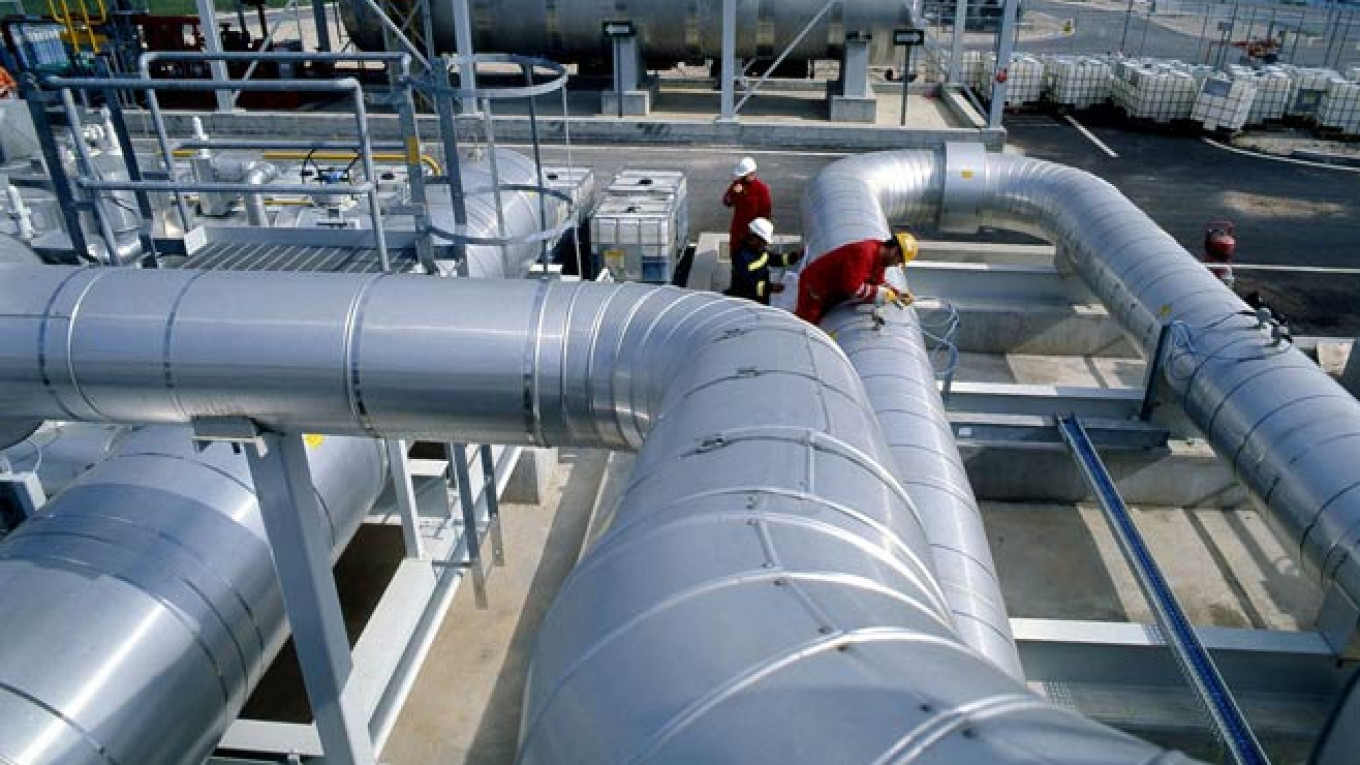ISTANBUL — Turkey would consider allowing the South Stream pipeline, which will carry natural gas from Russia to Europe, to pass through Turkish territory if Moscow made such a request, Energy Minister Taner Yildiz said on Wednesday.
The subject is one of a series of issues ranging from increased gas supply and gas price revisions to nuclear power that Turkey and Russia are set to take up in talks in Ankara next week, according to Turkish officials.
The future of the 2,400 kilometers South Stream line from Russia via the Black Sea to Europe, avoiding Ukraine, has been cast into doubt because of the crisis over Russia's annexation of Crimea.
"We are open to assessing any request for the line to pass through Turkey's territory," Yildiz told reporters when asked about the South Stream project.
"It is said that there could be such a demand. If there is a request, we will consider it," said Yildiz, due to hold talks with Gazprom deputy head Alexander Medvedev in Ankara on Monday.
South Stream is planned to pump gas into Bulgaria and from there further into the European Union by the end of the decade.
Under discussion was making the pipeline enter land in the Thrace region of northwest Turkey rather than Bulgaria, to avoid routing it directly from Russia into an EU country, one energy analyst said.
"That way Russia will be able to feed directly with the line the Marmara region of Turkey, which has the highest level of consumption," said the analyst, who declined to be identified.
The construction of a second Blue Stream pipeline, complementing an existing one that runs under the Black Sea from Russia to Turkey, could also come onto the agenda soon, sources close to the matter said.
South Stream Uncertain
Russian company Gazprom's partner in South Stream, Italy's Eni, has said the future of the project has been put in question by the escalating dispute over Ukraine. . The EU has also postponed clearing the project.
Unprecedented talks across the European Union on Tuesday showed it scrambling for solutions on the ground to break its dependence on Russian gas and help supply Ukraine.
Despite the crisis in East-West relations, the consortium running the South Stream project said it would start laying the first stretch of pipes this autumn.
Besides Gazprom and Eni, the other shareholders in the project are France's EDF and Germany's Wintershall.
Energy officials said the annexation of Crimea created a risk for Turkey, noting 12.5 percent of Turkey's gas supplies passed through Ukraine via the Western Line, and that steps to prevent a supply problem could be on the agenda next week.
In a letter to European leaders last week, President Vladimir Putin warned Russia would cut natural gas supplies to Ukraine if it did not pay its bills and said this could lead to a reduction of onward deliveries to Europe.
"The issue of what will happen if there is a flow problem in the Western Line will be taken up with Russia," a senior Turkish official said.
Another issue on the agenda will be an increase in the capacity of the Blue Stream gas pipeline by around 3.5 billion cubic meters annually from 16 bcm currently, as sought by Turkey, a senior energy official said.
Ankara is also seeking a downward revision in the price of natural gas that it obtains from Russia.
Turkey's plans for a third nuclear power plant are also expected to come up in next week's talks.
Russia's Rosatom is building the first four nuclear reactors at Akkuyu in southern Turkey but the project has hit delays that will push back the start of production by almost a year. Its second planned nuclear plant was awarded last May to a Japanese-French consortium.
A Message from The Moscow Times:
Dear readers,
We are facing unprecedented challenges. Russia's Prosecutor General's Office has designated The Moscow Times as an "undesirable" organization, criminalizing our work and putting our staff at risk of prosecution. This follows our earlier unjust labeling as a "foreign agent."
These actions are direct attempts to silence independent journalism in Russia. The authorities claim our work "discredits the decisions of the Russian leadership." We see things differently: we strive to provide accurate, unbiased reporting on Russia.
We, the journalists of The Moscow Times, refuse to be silenced. But to continue our work, we need your help.
Your support, no matter how small, makes a world of difference. If you can, please support us monthly starting from just $2. It's quick to set up, and every contribution makes a significant impact.
By supporting The Moscow Times, you're defending open, independent journalism in the face of repression. Thank you for standing with us.
Remind me later.






